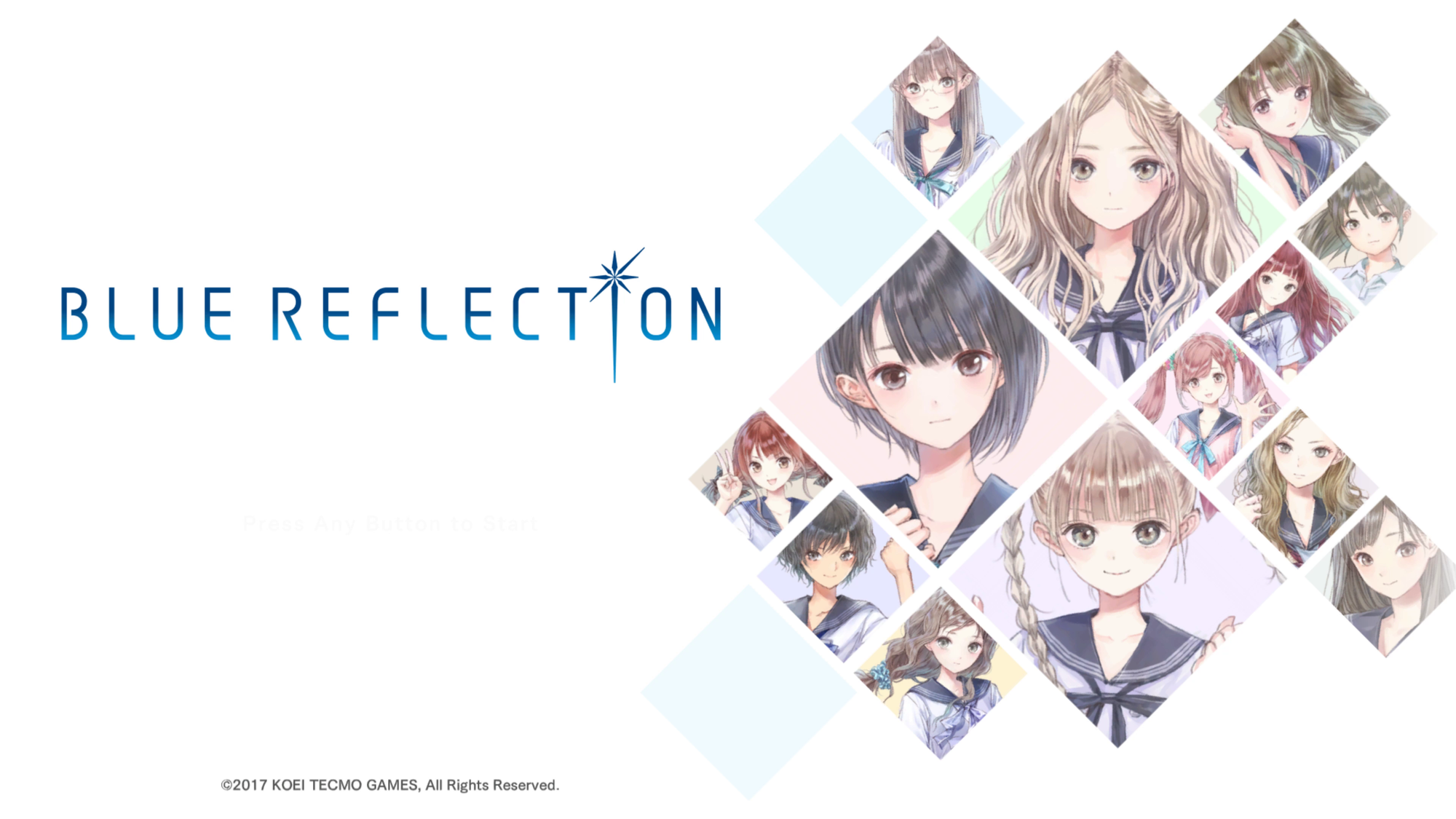Why These Magical Girls Make For A Good RPG - Blue Reflection
A nuanced look at the complicated lives of teenage girls trying to make their way through their own school told in the backdrop of Biblical Angels sent to destroy it.
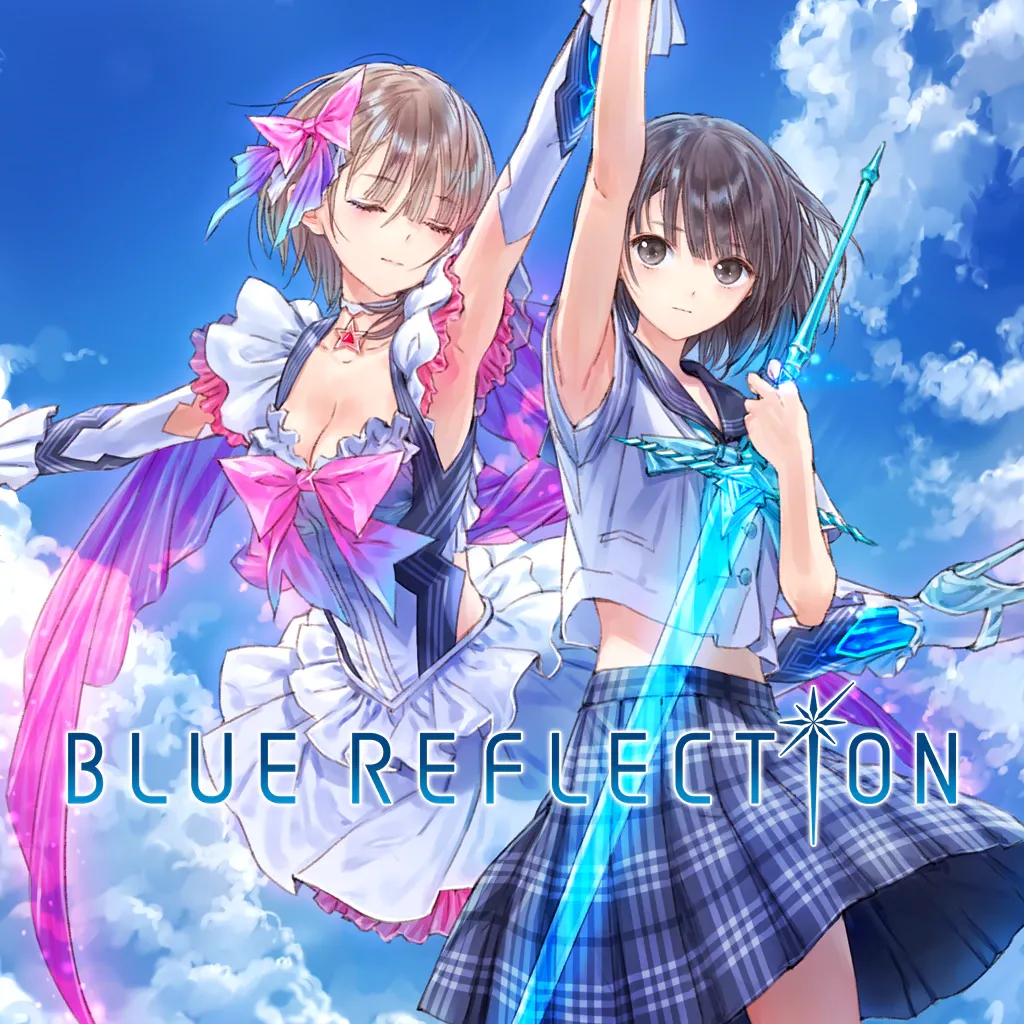
I wasn't originally going to do a piece on Blue Reflection. However, after playing the Blue Reflection: Second Light demo, I thought, "damn, this shit dread". Upon learning that Second Light was the second game in the franchise, I got the first game for the PC. Second Light's demo was a great introduction to the game's real-time strategy mechanics. Second Light was clearly leading from the first game, and I wanted to also enjoy the story.
Blue Reflection is a fantastic slice of life RPG which centres itself on teenage girls and the issues they face being teenagers. Going from a mundane plot line about a girl wearing makeup because she likes the art it can produce all the way up to sexual assault and trauma. Blue Reflection takes a nuanced look at emotions and how it interacts with the characters, crafting a unique identity for itself in a sea of over-the-top RPG clones.
In this essay, I'll look at how the game handles itself, its severe and traumatic topics, and how it uses the plot to inform game mechanics. While this will not be a review, I will call out specific issues with the game and praise what many should be taking notes of.
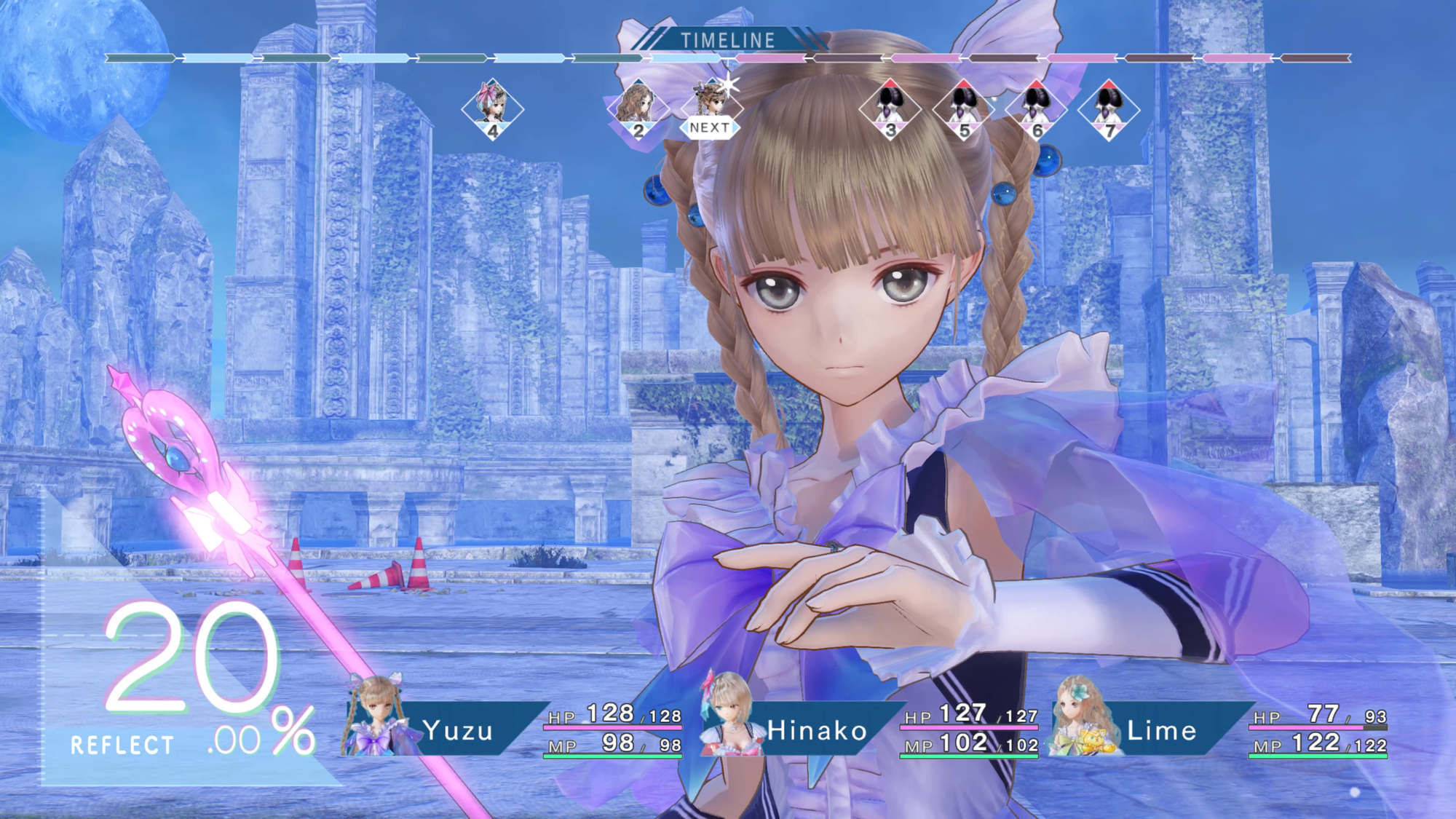
Chapter One – Is this Slice of Life?
Once I got into the game and played for an hour or so. Something quickly hit me. This is a magical girl, slice-of-life JRPG. At that moment, I couldn't recall the last time I saw a game like this. It was a breath of fresh air in a genre that defines itself on over-the-top dramatics, punishing gameplay, and a complex lore system that spans genres.
I have to be fair to Blue Reflection, and it carries profound lore that expands itself much like the JRPGs and RPGs that came before it. The gameplay systems are decently complex, but with an air of accessibility to them, where I didn't actually feel frustrated learning or playing the game.
The game can be considered a casual RPG, though I believe this classification to be a bit limiting. The game is very relaxed. It makes it easy to pick up and just play. However, a lot is going on here, from manually levelling up your characters to keeping track of the multiple NPC characters and their relationships with one another.
Overall, the game is a fun experience that shines once you don't let the little things bother you. The game isn't perfect, but it is worth your time.
Chapter Two – Magical Mechanics
I am writing this piece primarily to look at the game's stories. However, I want to take a moment to talk about the game's RPG mechanics.
The game starts you off as Hinako Shirai, a ballet dancer who injured her knee the previous year and has been unable to follow through with her dream of being a dancer. You eventually encounter another student consumed by their emotions, and they begin acting out. You then meet Yuzuki and Lime Shijou, who grants you the power to become a "Reflector" by giving you a ring. Though their decision seems simple at first, later, it is revealed that there is much more to this decision.
You jump into the Common, where everyone's emotions are shared. In "The Common", there are monsters who respond and feed off different kinds of emotions. The common also has these crystals, which house the deep-held emotions of the person whose emotional state you are in. Once you break enough crystals and beat the main antagonist, you leave the common and go back out in the real world, where you help the person, gain friends, and gain their fragments which help you in battle. The game incentivises you to do as many quests as possible, make new friends and earn their fragments which can help change the way you battle and power up your moves and character. It really leans into that whole, "Oh, you're a God? I'm sorry, but you don't have the power of friendship." This also serves as a good allegory for friends supporting each other in emotional distress.
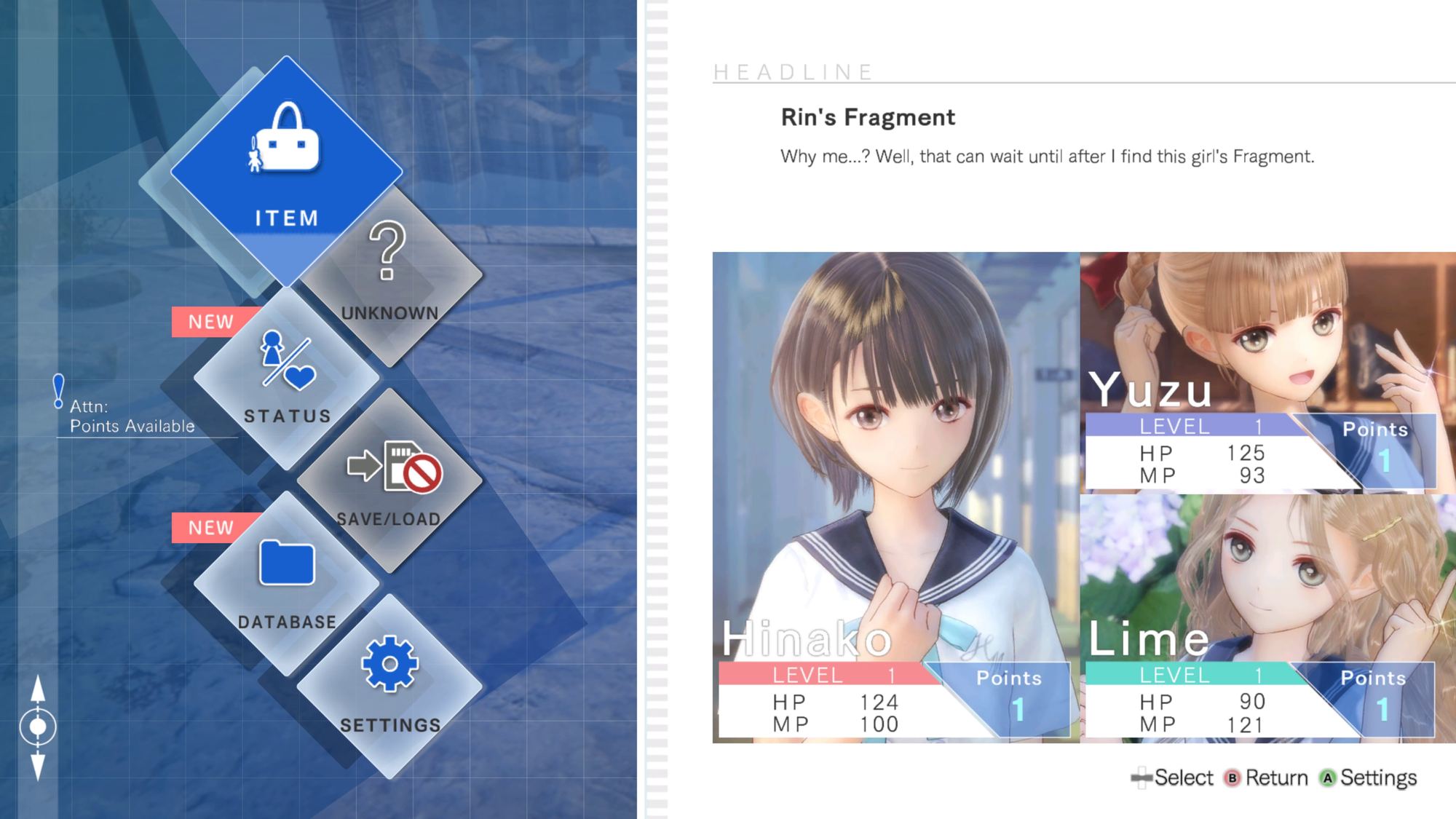
The game has a mostly grounded, real-life, slice-of-life aesthetic. Then the bosses show up at the school, and they are literally these massive, biblical-style angels, titan-like monsters. The designs are genuinely intriguing.
Weaknesses are displayed to the user using symbols. And it doesn't tell you when it changes. And it only tells you after you've attacked. When I pick a circle attack, there is no visual indicator to determine if this is a weakness or strength. I simply must remember it. It's all grey. This is a real-time battle, and it is hard to remember square, circle, and triangle in the heat of the fight. It's easier to remember when games use colour to help you differentiate between weaknesses and strengths. Then sometimes, some monster just chooses other battle weaknesses in the middle of the battle.
You can take up to four friends into battle. And they offer bonus stats, such as health, attack up, healing, etc. The game wants you to complete as many side quests as possible to unlock friends to use in battle. When you invoke one of your friends during your turn, they make quite a spectacle.
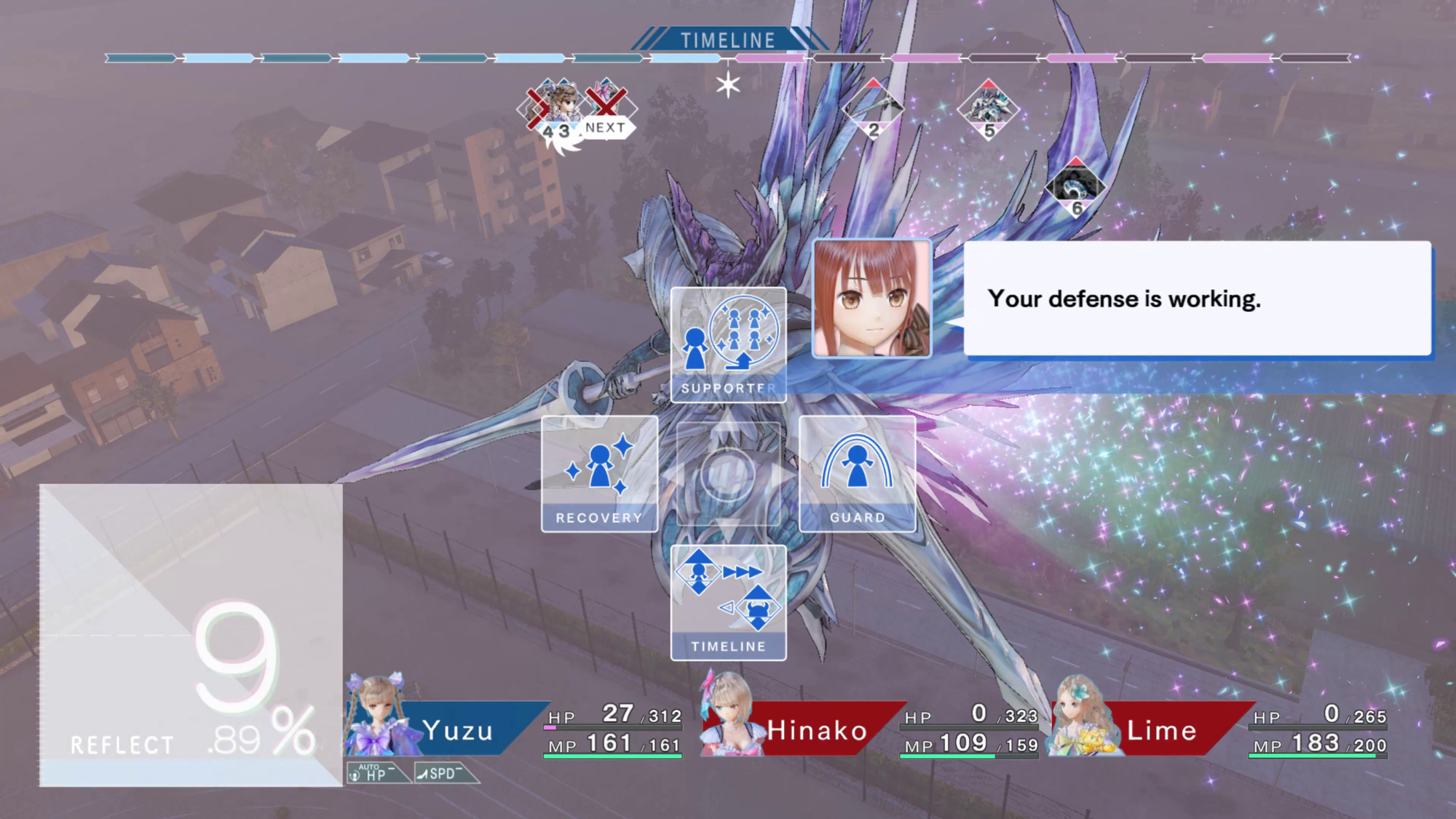
Another point is that other games use emotions as a part of gameplay mechanics, such as the ill-fated Princess Peach game. (let me know if you want me to do a write-up on that)
Another thing to note is that the entire cast of this game is girls aged 15-18. And all of their stories are just normal but real stories. Their stories are also, at times, tedious and petty. In one account, we have a girl named Ako, whose subplot involves her being like, "oh my god, my father would never approve of my career choice". And you have to then save Ako because she was too stupid/stupid to understand that journalism isn't that bad. And her father, who is an in-universe rockstar, would be proud of her. I didn't care for this plot point, but it shows what Blue Reflection does well.
If you're looking for female-focused, hyper-feminist, lead games, you're not going to find them here. The game has many fan service moments undermining what Blue Reflection wanted to stand for.
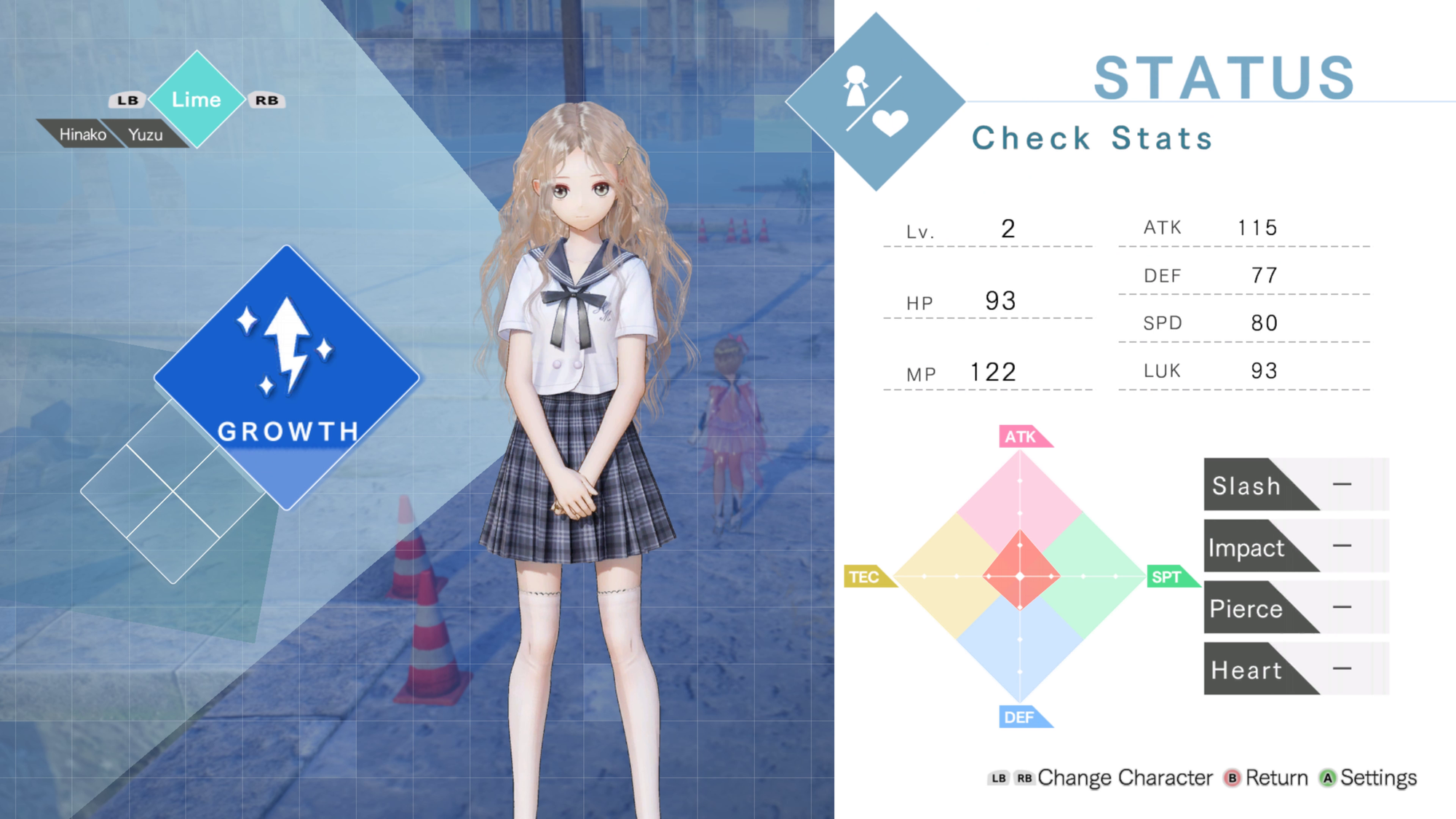
Chapter Three - There shouldn't be any fan service
It really becomes unbecoming by the mid-game. You'd get a low-angle shot at the start of the game, looking up, and I'm there thinking," oh, okay, fine, it's a little weird but okay". But then it keeps happening. Every few cutscenes would be this weird angle camera, and you'd stand there going, "What is this?". Especially given the content of the game and who it is meant for.
I think the game needs to reduce or altogether remove the fan service especially given the target audience.
Chapter Four - A breath of fresh air
I grew up with Hamtaro, Card Capture Sakura, and Totally Spies. Cartoons and anime that are female-focused and whose storylines are tailored towards girls. I watched several popular ones, and I enjoyed them as well. There is a demand for this kind of writing style and slice-of-life. I have not seen this kind of slice of life and female-focused writing in a JRPG. Others may have been produced in Japan but haven't seen a translated release. I've played many dating sims and visual novels, though I only play the critically acclaimed ones.
Some people will criticise the game for leaning so heavily on emotions. I understand the history and its implications of it. However, at the same time, I think the game did a good job showing the player just how emotions can become monstrous when left unattended. It can be violent, and it can feel like a battle for some people. There were some issues. Some emotions were represented well, and others not. The game has potential.
Every girl in the game is just their problem. Their characters are only as deep as the problems they face. Despite this, you do get to help them along with their problems. You get to see them resolve issues through direct or indirect actions. There are times when, even though you 'solve' the character's issue, the character themselves need to be willing to accept the help or do the work required to move on. So every quest may end, but ultimately it isn't up to the protagonist whether or not the characters are better in the end.
Blue Reflection is an excellent female-focused story you don't really get to hear or see that often in games.
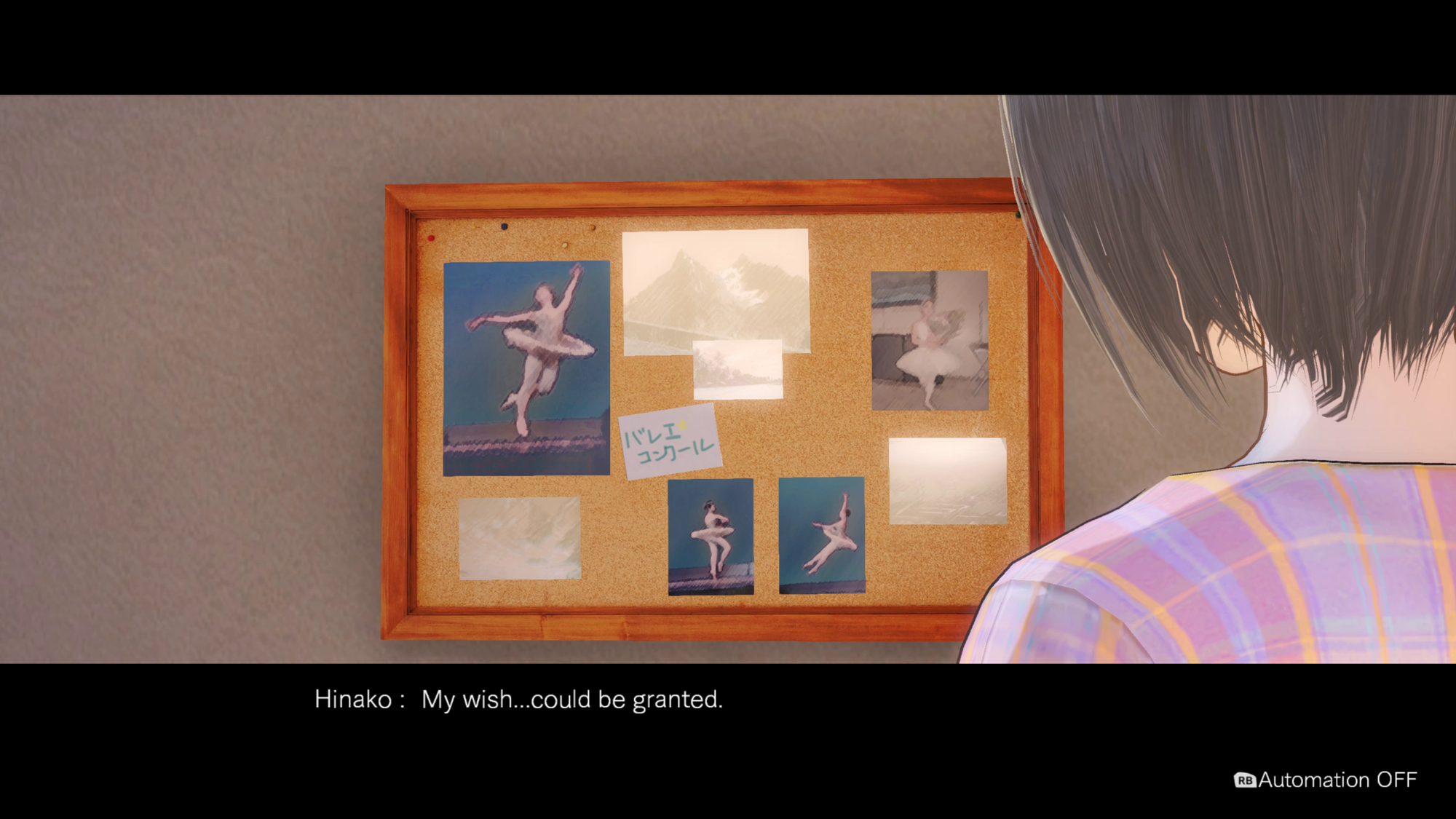
Chapter Five - Not All That Glitters
The characters may not be very unique visually, but the issues they face vary greatly. There are more minor issues, such as some girls being jealous of an exceptionally gifted girl because of her makeup.
One girl loves makeup and wanted to share the joy of makeup with her friends. She thinks that's all she's worth, and it's the only way for her to make friends. She goes and helps them put on makeup and wants all of them to love makeup. When she goes and helps these other girls put on their makeup and puts on hers, The fellas tend to like her. For one girl, in particular, it made her angry at the makeup girl. She didn't understand what she was doing wrong when nothing was wrong with her. And the individual was projecting their insecurity onto the makeup girl, which made the makeup girl insecure. She bonded with people over their love of makeup.
There were issues where the main protagonist is constantly battling her accident which stopped her from dancing, and her friend, who knew about it, used it against her. There were issues where the characters were intentionally lying about other characters so the others would isolate and bully them. The game's storylines can be charming and easy-going, but when it takes a turn, it is a sharp turn.
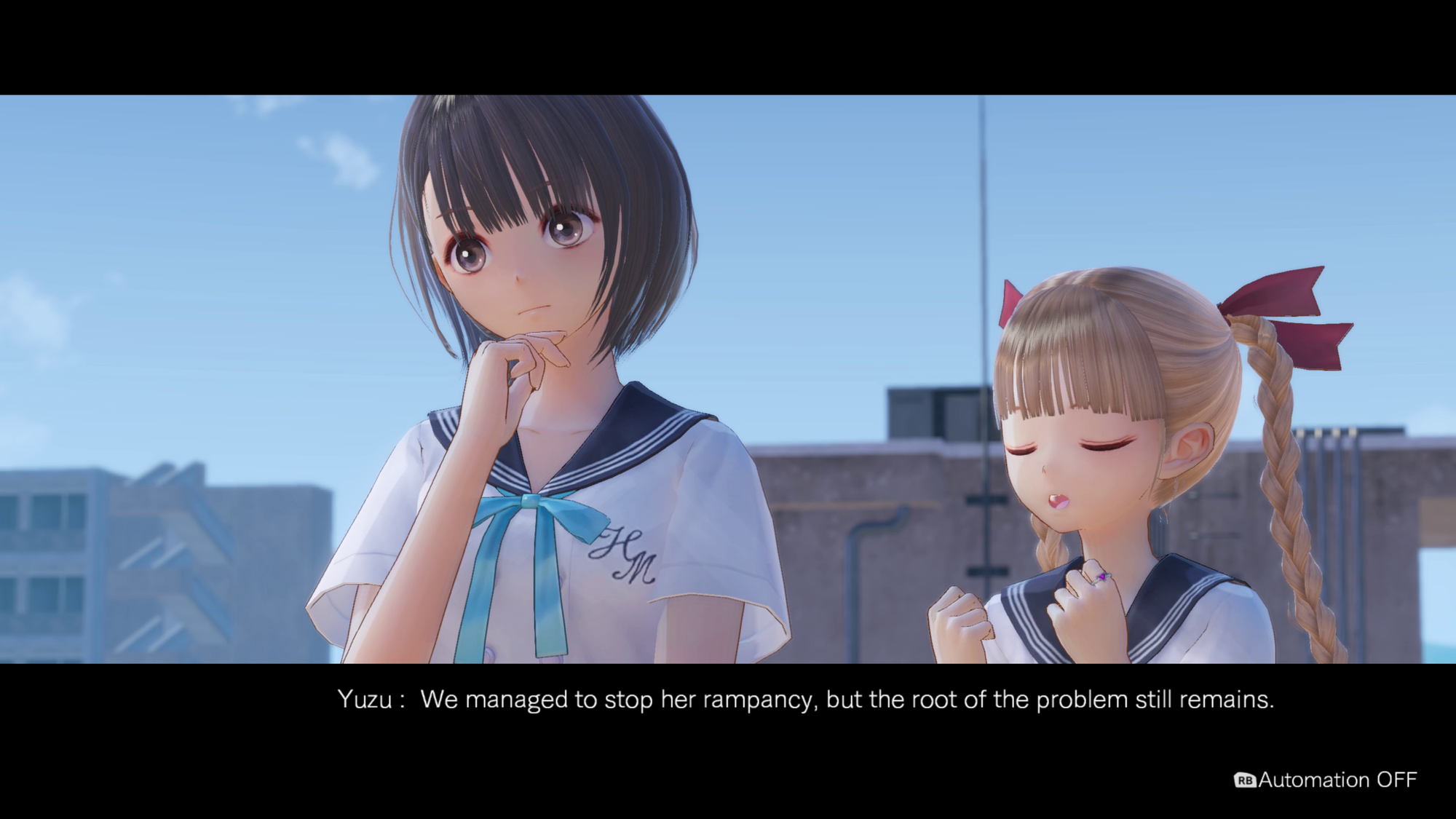
One of the girls finds a camera in the changing room, and I was like, holy shit, that's a real fucking plot line. I was getting ready for a teacher doing this, and we would have to do some real shit here.
A girl and her friend discovered the camera and realized someone was spying on them in the changing rooms.
One girl is furious and wants to desperately find the person, and the other is like meh, whatever, let me play on the phone. It may seem weird to some, but those are accurate responses if you've interacted with or seen people deal with and process trauma. Some people might fight hard to make sure this never happens again / reclaim power for either themselves or others. Some people might just recluse themselves into whatever they can to prevent from processing it. It could be tv, movies, music, books, going out, clubbing, and anything else. This was really good to see these actual responses. It was entirely out of nowhere. You get Saturday morning cartoons, then boom.
I was fully prepared for a conclusion where it was an adult, a principal, a teacher, or something along those lines. I was fully ready to see how far the story would go with these issues, maybe evening speaking on society as a whole.
And then we find out it's a girl.
Not just any girl, it's the Captain of the girls' team. She placed the camera there. And I was like fuck, I genuinely didn't expect them to say it was a girl.
But then it was never addressed.
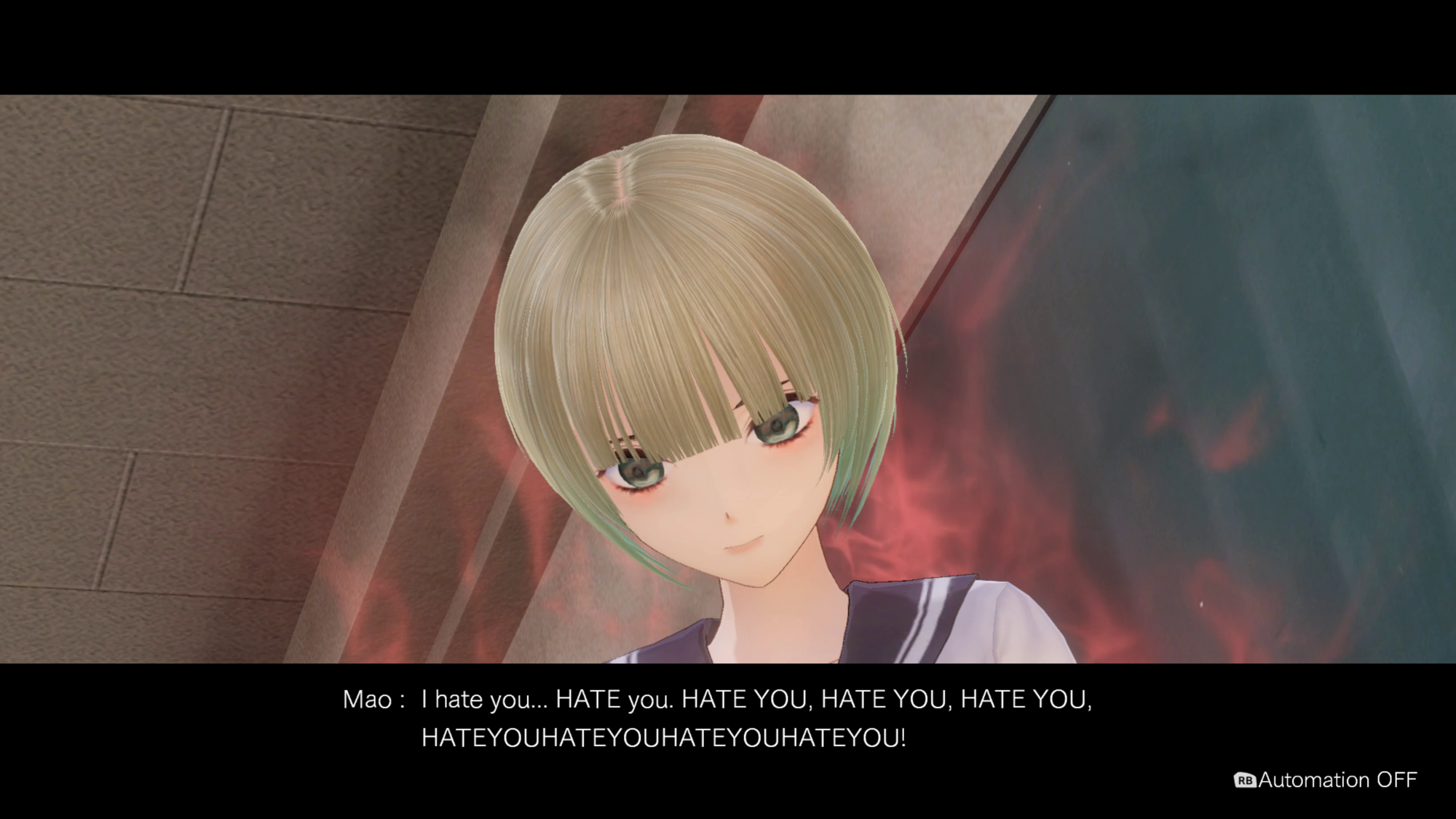
The girl who wants to know more and bring justice gets angry, and she gets angrier when the other girl who reclused doesn't want to address the issue. As they both get angrier, they go rampant, and you must go into the common to fix it. And you find their crystals and break them, and you feel what they feel. Then you come out in the real world, and then Lime says you can try to help someone knowing fully what they have been through, but it may not always work.
I think it was an excellent plot point to have the characters acknowledge that this is all they can do at this point.
It was good that they provided a nuanced look at something as serious as this. Certain things can mess up people in various directions that we don't simply understand or know how to deal with.
In another game, it might have been a switch. You know you break the crystal, and everything is fixed. Especially if it was a side character, you see the quest would have been done, and you probably wouldn't think about it again. The game deserves credit for adding the nuance when I didn't expect it.
You focused on the people and how they were affected. We don't know the real repercussions and what the actual punishment was. It was okay to just leave and connect the dots for some others. This quest affected the entire school.
That was the last plot point I went through, and maybe it was addressed further down the line. So ultimately, I don't know if the character in question was punished or if the victims ever got any relief or dealt with it.
I think they addressed some of it was really good. It was a great nuanced quest and arc. The game set itself up to have an honest discussion about the issues.
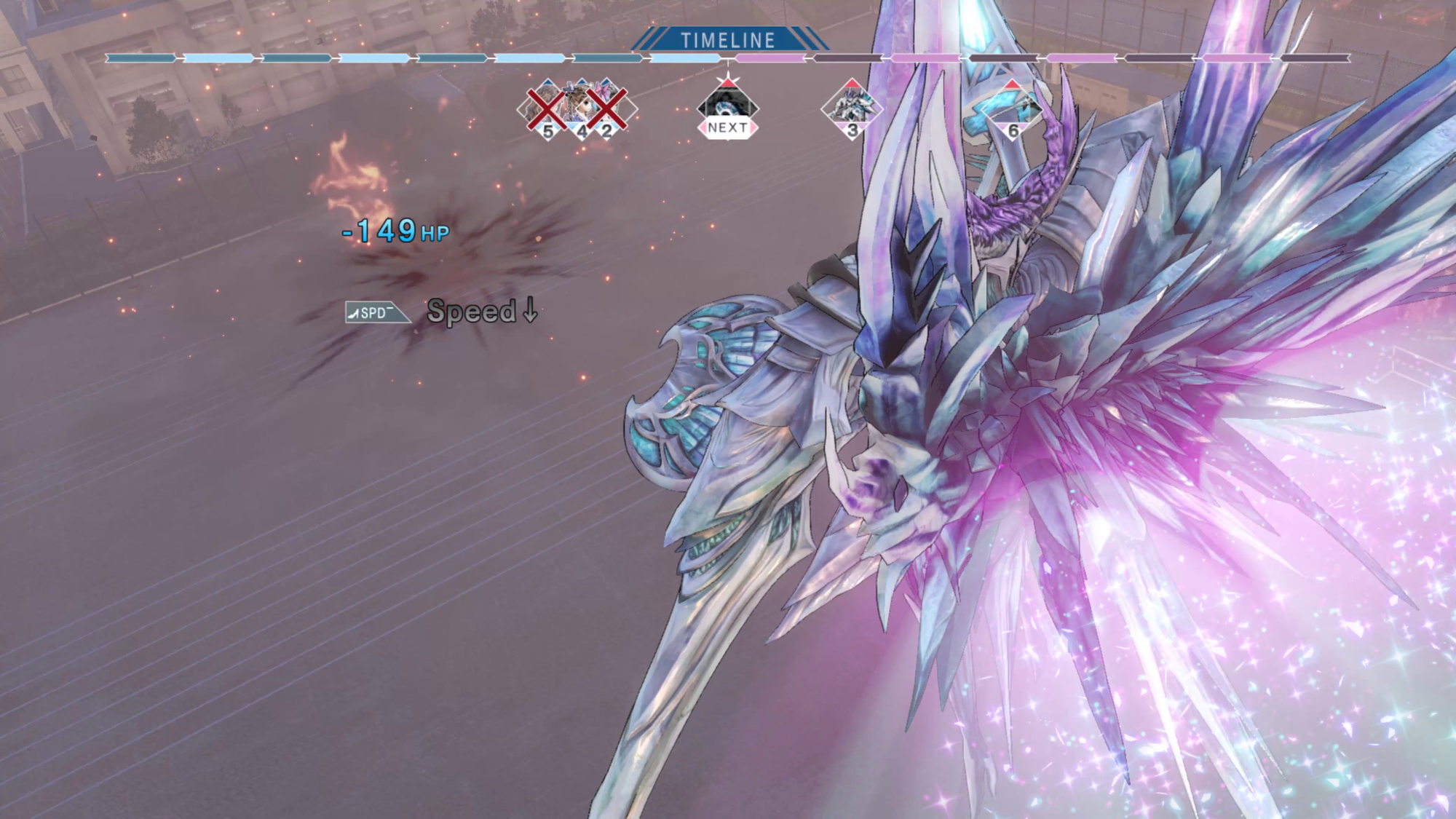
Chapter Six - All together now
Blue Reflection offers a diverse set of characters, stories, and personalities for every kind of person to get attached to. Each character comes with their own problems and nuances and adds a great deal to the story. It's a fun take on an overdone RPG style.
There are problems with the battle system, but the moves are well designed, and a lot of visual candy is associated with it. No action really feels tedious. However, coming down to the end of the game, you'll find the moves that do the most damage and just use those to complete the game. You'll spam AoE and knockback moves mostly. When that fails, there is Lime. Who, for some reason, is an absolute unit. She has some kind of hidden damage modifier that makes her hit enemies like a break wall. She is, without a doubt, op.
I think she was placed there to ensure casual players can power through the game. It is an excellent way to keep the player moving, especially if they might not have been competent or advanced in RPG mechanics.
Some topics here you don't find in other games. There are many cutscenes, and hopefully, they'll reduce it going forward. Fanservice is still a big problem that can affect playability. Don't rush through the game; otherwise, it becomes frustrating.
Overall I'd love to see more depth and nuance in the characters. I feel like this game really has a lot to offer.
Even though it exists within its niche medium, I think the game can go beyond its niche and help craft a new RPG style that appeals to gamers who would like to see a story with a more modern touch and more profound stories.
